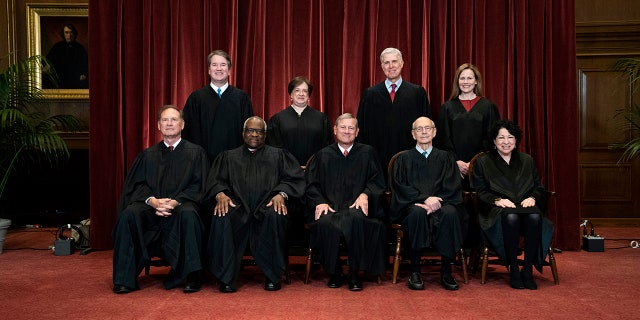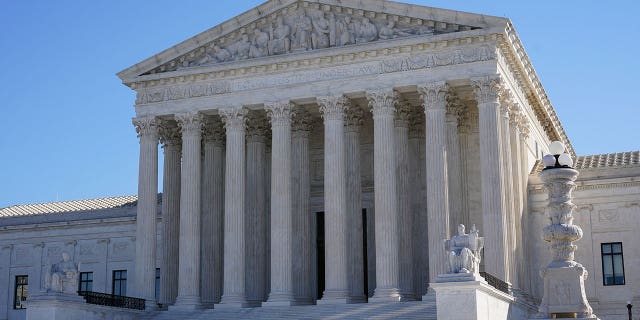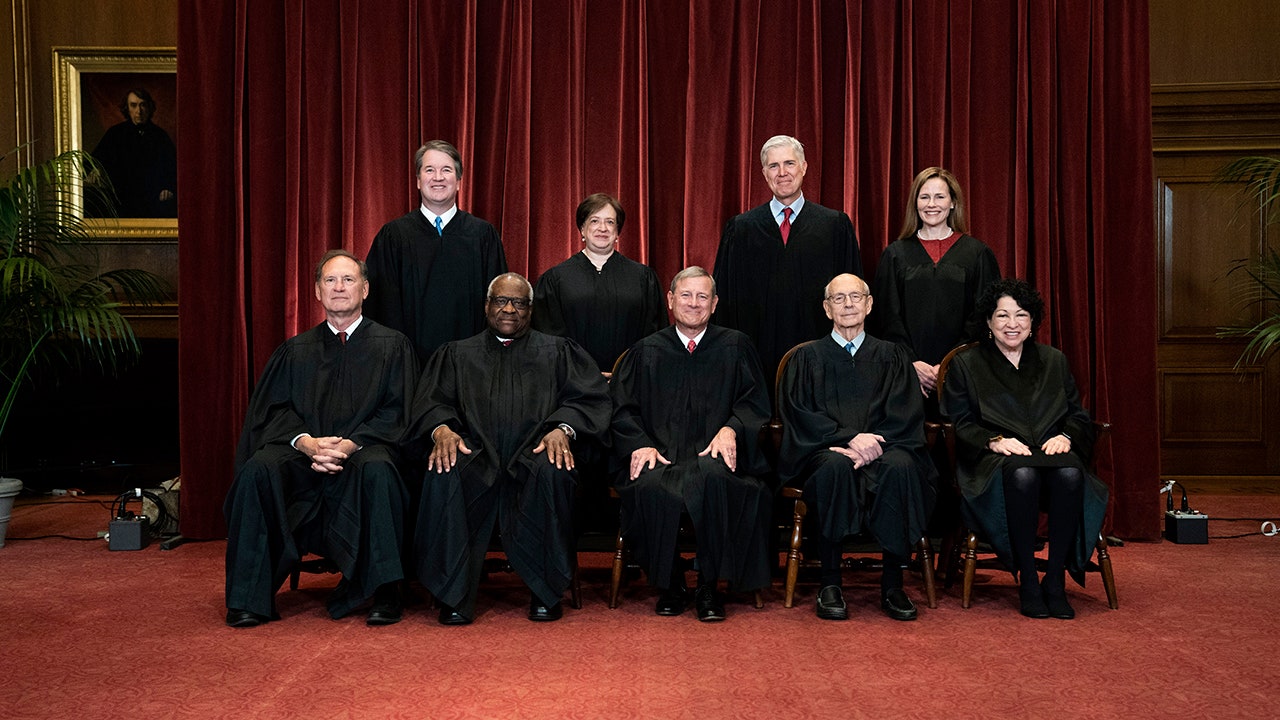NEWYou can now listen to Fox News articles!
The leak of Supreme Court Justice Samuel Alito’s draft majority opinion potentially overturning Roe v. Wade and Planned Parenthood v. Casey could damage public trust in the nation’s highest court and eventually lead to criminal charges, according to a legal expert.
“Leaks sow distrust in the court, undermine the legitimacy of the court,” John Malcolm, a senior legal fellow and vice president at the Heritage Foundation, told Fox News.
John Malcolm, vice president for the Institute for Constitutional Government at the Heritage Foundation.
(Heritage Foundation)
SUPREME COURT SET TO OVERTURN ROE V. WADE, LEAKED DRAFT OPINION SHOWS: REPORT
Malcolm pointed out that there have been leaks from the Supreme Court before the results of a case were announced in the past, but the leak of an entire draft opinion was a leak on a scale he has never encountered before.
“By leaking this whole opinion… it strikes me as a blatant attempt to do three things,” Malcolm said. “One, to delegitimize the court; two, to try to get Congress to do something before the opinion; three, to intimidate the justices.”
Outside the damage done to the reputation of the Supreme Court, Malcolm outlined “four potential crimes” the leaker may have committed when passing the information to journalists.

Members of the Supreme Court.
(AP)
“If this was an outsider who hacked into a computer to which they did not normally have access, that would clearly be a violation of the computer fraud and abuse act,” Malcolm said.
But Malcolm argued the leak was more likely to have come from someone inside the court, opening the door for other potential crimes.
He pointed to honest services fraud, an extension of mail and wire fraud.
“Perpetrating a fraud can include somebody who has a duty and obligation to act a particular way,” Malcolm said.
While someone that works at the court such as a clerk may have a duty to maintain the secrecy of opinions, Malcolm pointed out that the statute governing honest services has been “pared back” in recent years. In order for leaking the draft opinion to rise to the level of honest services fraud, the leaker probably would have to have been “offered something tangible, like a kickback or bribe.”
Another possible criminal violation would be theft or embezzlement of government property, but Malcolm pointed out there are complicated layers to that type of charge as well.
He noted that some courts have ruled that the stolen property has to be something “tangible,” while other courts have ruled that something intangible such as information could qualify.
But he pointed out that the D.C. Circuit, which Washington, D.C., falls under, is one such court that has ruled on the side of “intangible” goods qualifying as theft.

The Supreme Court building
(AP Photo/Patrick Semansky)
The last scenario Malcolm raised was the potential of someone making a false statement to officers during an investigation, opening them up to criminal charges.
“If the FBI asks or interviews all these people, if they sign a statement, they say they were not the leaker and it turns out they are, they could be prosecuted making a false statement to a law enforcement officer,” Malcolm said.
Such a scenario could still play out, with Chief Justice John Roberts announcing Tuesday that he has directed the head of the Supreme Court Police to conduct an investigation into the leak.
CLICK HERE TO GET THE FOX NEWS APP
“To the extent this betrayal of the confidences of the Court was intended to undermine the integrity of our operations, it will not succeed,” Roberts said in a statement. “The work of the Court will not be affected in any way.”
“I have directed the Marshal of the Court to launch an investigation into the source of the leak,” he continued.
